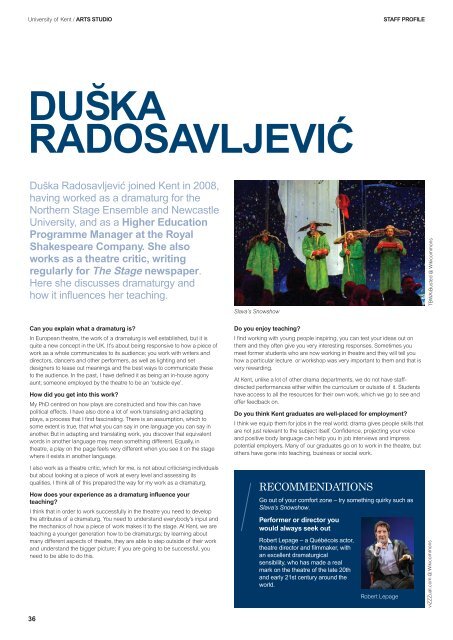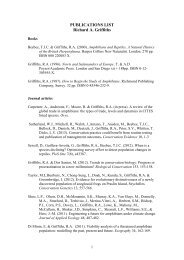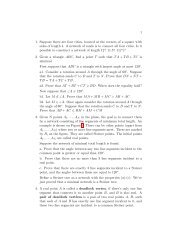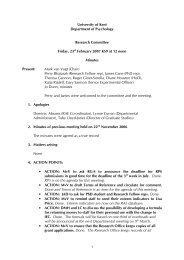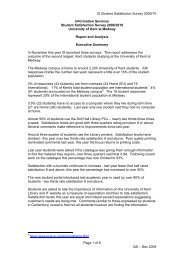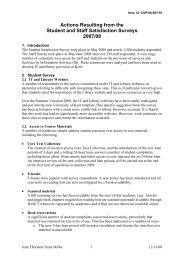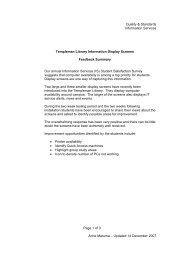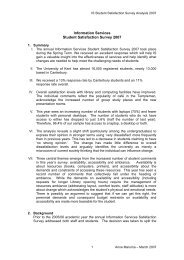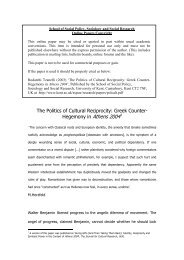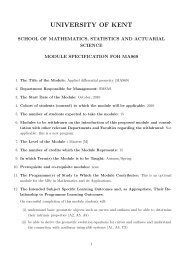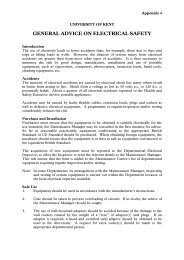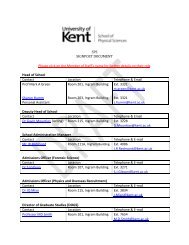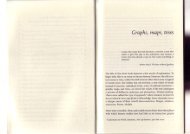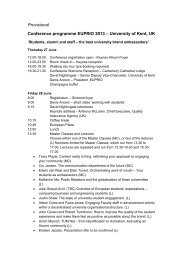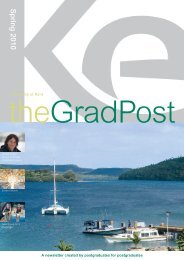Download - University of Kent
Download - University of Kent
Download - University of Kent
Create successful ePaper yourself
Turn your PDF publications into a flip-book with our unique Google optimized e-Paper software.
<strong>University</strong> <strong>of</strong> <strong>Kent</strong> / ARTS STUDIO<br />
STAFF PROFILE<br />
DUS˘KA<br />
RADOSAVLJEVIĆ<br />
Dus˘ka Radosavljević joined <strong>Kent</strong> in 2008,<br />
having worked as a dramaturg for the<br />
Northern Stage Ensemble and Newcastle<br />
<strong>University</strong>, and as a Higher Education<br />
Programme Manager at the Royal<br />
Shakespeare Company. She also<br />
works as a theatre critic, writing<br />
regularly for The Stage newspaper.<br />
Here she discusses dramaturgy and<br />
how it influences her teaching.<br />
Can you explain what a dramaturg is?<br />
In European theatre, the work <strong>of</strong> a dramaturg is well established, but it is<br />
quite a new concept in the UK. It’s about being responsive to how a piece <strong>of</strong><br />
work as a whole communicates to its audience; you work with writers and<br />
directors, dancers and other performers, as well as lighting and set<br />
designers to tease out meanings and the best ways to communicate these<br />
to the audience. In the past, I have defined it as being an in-house agony<br />
aunt; someone employed by the theatre to be an ‘outside eye’.<br />
How did you get into this work?<br />
My PhD centred on how plays are constructed and how this can have<br />
political effects. I have also done a lot <strong>of</strong> work translating and adapting<br />
plays, a process that I find fascinating. There is an assumption, which to<br />
some extent is true, that what you can say in one language you can say in<br />
another. But in adapting and translating work, you discover that equivalent<br />
words in another language may mean something different. Equally, in<br />
theatre, a play on the page feels very different when you see it on the stage<br />
where it exists in another language.<br />
I also work as a theatre critic, which for me, is not about criticising individuals<br />
but about looking at a piece <strong>of</strong> work at every level and assessing its<br />
qualities. I think all <strong>of</strong> this prepared the way for my work as a dramaturg.<br />
How does your experience as a dramaturg influence your<br />
teaching?<br />
I think that in order to work successfully in the theatre you need to develop<br />
the attributes <strong>of</strong> a dramaturg. You need to understand everybody’s input and<br />
the mechanics <strong>of</strong> how a piece <strong>of</strong> work makes it to the stage. At <strong>Kent</strong>, we are<br />
teaching a younger generation how to be dramaturgs; by learning about<br />
many different aspects <strong>of</strong> theatre, they are able to step outside <strong>of</strong> their work<br />
and understand the bigger picture; if you are going to be successful, you<br />
need to be able to do this.<br />
36<br />
Slava’s Snowshow<br />
Do you enjoy teaching?<br />
I find working with young people inspiring, you can test your ideas out on<br />
them and they <strong>of</strong>ten give you very interesting responses. Sometimes you<br />
meet former students who are now working in theatre and they will tell you<br />
how a particular lecture or workshop was very important to them and that is<br />
very rewarding.<br />
At <strong>Kent</strong>, unlike a lot <strong>of</strong> other drama departments, we do not have staffdirected<br />
performances either within the curriculum or outside <strong>of</strong> it. Students<br />
have access to all the resources for their own work, which we go to see and<br />
<strong>of</strong>fer feedback on.<br />
Do you think <strong>Kent</strong> graduates are well-placed for employment?<br />
I think we equip them for jobs in the real world; drama gives people skills that<br />
are not just relevant to the subject itself. Confidence, projecting your voice<br />
and positive body language can help you in job interviews and impress<br />
potential employers. Many <strong>of</strong> our graduates go on to work in the theatre, but<br />
others have gone into teaching, business or social work.<br />
RECOMMENDATIONS<br />
Go out <strong>of</strong> your comfort zone – try something quirky such as<br />
Slava’s Snowshow.<br />
Performer or director you<br />
would always seek out<br />
Robert Lepage – a Québécois actor,<br />
theatre director and filmmaker, with<br />
an excellent dramaturgical<br />
sensibility, who has made a real<br />
mark on the theatre <strong>of</strong> the late 20th<br />
and early 21st century around the<br />
world.<br />
Robert Lepage<br />
viZZZual.com @ Wikicommons TBWA\Busted @ Wikicommons


